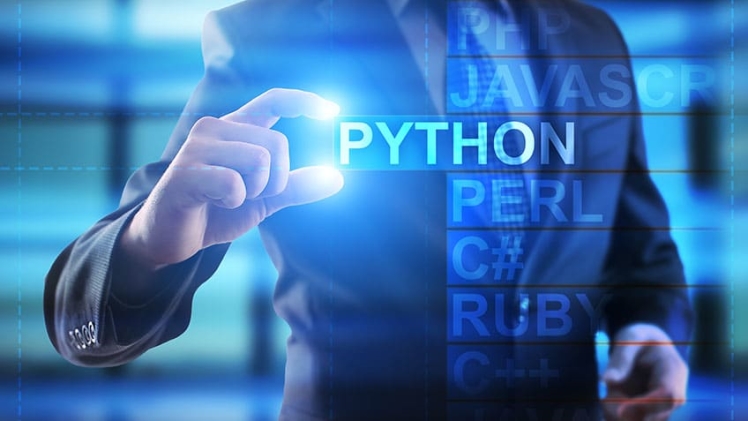From 2018 to 2021, for four consecutive years, Python stayed at the top of the most in-demand technologies in the world, as per a report by the Developer Survey by StackOverflow.
In the year 2021, it was ranked as the 2nd most popular programming language in the world among professional software developers. Also, it was ranked first most wanted programming language.
Let’s look at some of the stats that will make you realize it is worth taking a Python Training Course.
- A report by Dice states that Python was in the top five most in-demand tech skills in 2018.
- TIOBE index has also ranked Python as the second most popular coding language in 2021.
- The PYPL Popularity of Programming Language Index monitors the frequency of searches made online for tutorials of different programming languages. This index shows a 20% growth over the last five years in the popularity of Python.
- Some of the biggest names include Google, IBM, Facebook, YouTube, Yahoo, NASA, Dropbox, Quora, Uber, Mozilla, Instagram, etc. utilize Python Certifications for a wide variety of purposes and are therefore looking for professionals expert in Python.
- Python is the programming language that is widely used in a variety of applications based on Artificial Intelligence, Machine Learning, Robotics, and Big Data
- Python is considered as the ‘grammar’ of Data Science.
The above facts show you that it is worth learning Python. Let’s look at the fundamentals of Python further in this article.
What is Python?
Python is the most popular programming language developed in 1991 by Guido van Rossum. It is widely used in server-side web development, mathematics, software development, system scripting, data science applications, machine learning, and big data applications. It can also be used for rapid prototyping or production-ready software development.
Reasons for learning Python:
- It can work on different platforms including Mac, Windows, Raspberry Pi, Linux, etc.
- Python is easy to learn as the syntaxes are just like simple English language
- Python is free and open-source
- It is an object-oriented programming language that supports concepts of objects, classes, inheritance, encapsulation, etc.
- It can be easily integrated with other languages
Fundamentals of Python
It is important to know the fundamentals of any language if you wish to master it. To start with, you should know the syntaxes used in Python. Python is easily readable and its syntaxes are very similar to simple English language with influence from mathematics. You need to use new lines to complete a command. To define the scope, you need to use whitespace, including the scope of loops, functions, and loops.
Statements:
Python statements are logical instructions that interpreters can read and execute. They can be single or multiline. The two categories of statements are:
- Expression statements
- Assignment statements
Expression statements example:
Simple arithmetic expression
(1+5)*3
18
Assignment Statements example:
New variables can be created with the help of assignment statements. Also, you can assign or change values.
#LHS ⇔ RHS
Variable = expression
Multiline Statements
- Implicit method
- Explicit method
Implicit example: a = (0+1+2+5+6)
Explicit example a = 0+1+3 / 5+6+7
Indentation
Python utilizes indentation to mark a block of code. Unlike other programming languages, it is mandatory to use indentation in Python for better code formatting.
Comments
To increase the readability of code, Python uses comments that are tagged lines of code to make it self-explanatory.
- Single-line comments:
test = 8*8
type(test)
- Multi-line comments:
test= 8*8 / 2
type(test)
Variables
A variable is a changeable memory address. When it is not changeable, it is constant. The name of the memory location where you store your data is referred to as a variable. When a variable is stored, space is automatically allocated in the memory.
Assigning values to variables:
a = 1
b = 2
Multiple variable assignments:
i, j, k = 3, 15, ‘xyz’
Constants
The type of variable that can hold an unchangeable value is referred to as constant. Constants are rarely used in Python.
Token
The smallest units of the program are called tokens. Following are the tokens used in Python:
- Identifiers
- Literals
- Reserved words or keywords
- Operators
Keywords: the special words that have specific meanings reserved by Python are called keywords. They cannot be used as variables and are case-sensitive.
Some of the common keywords in Python are:
False
None
True
and
as
assert
break
class
Identifiers
Some user-defined names that represent programmable entities such as functions, variables, classes, modules, or other objects are called identifiers.
Some rules are to be kept in mind while defining an identifier:
- You are allowed to use a sequence of lowercase or uppercase letters and mix digits from 0 to 9 or an underscore to define an identifier
- Digits can be used to begin an identifier
- Reserved keywords cannot be used to define an identifier
- Apart from underscore, you cannot use other special characters
Literals
Python has the following types of literal:
-
String Literals
A sequence of characters that are encapsulated in quotes
-
Numeric Literals
There are three types of numeric literals namely integer, complex, and float. These are unchangeable or immutable
-
Boolean Literal
A boolean literal can have True or False as a value
-
Collection Literals
The four different literals in Python are List Literals, Dict literals, Tuple literals, and Set Literals
-
Special Literals
None is the only special literal in Python. It is used to specify that field is not created
Operators
Operators are the specific symbols that are meant to perform specific operations on given values. These values are generally called operands.
The different categories of operators in Python are;
- Arithmetic Operators: addition +, subtraction -, multiplication *, Division /, Modulus %, exponent **, Floor division //
- Relational Operators: equal to ==, not equal to !=, less than <, greater than >, less than or equal to <=, greater than or equal to >=, not equal to <>
- Assignment operator: assignment, add then assign, subtract then assign, multiply then assign, divide then assign, modulus then assign, exponent then assign, the floor division then assign
- Logical Operator: Logical AND, Logical OR, Logical NOT
- Membership Operators: in, not in
Conclusion
Some of the basic concepts of Python are covered in this article. To learn this programming language in depth and start coding, learn the concepts with an online training course. An online training course can help you go hands-on with real-life practice coding and learn the language thoroughly.
Enroll Yourself Now!!

